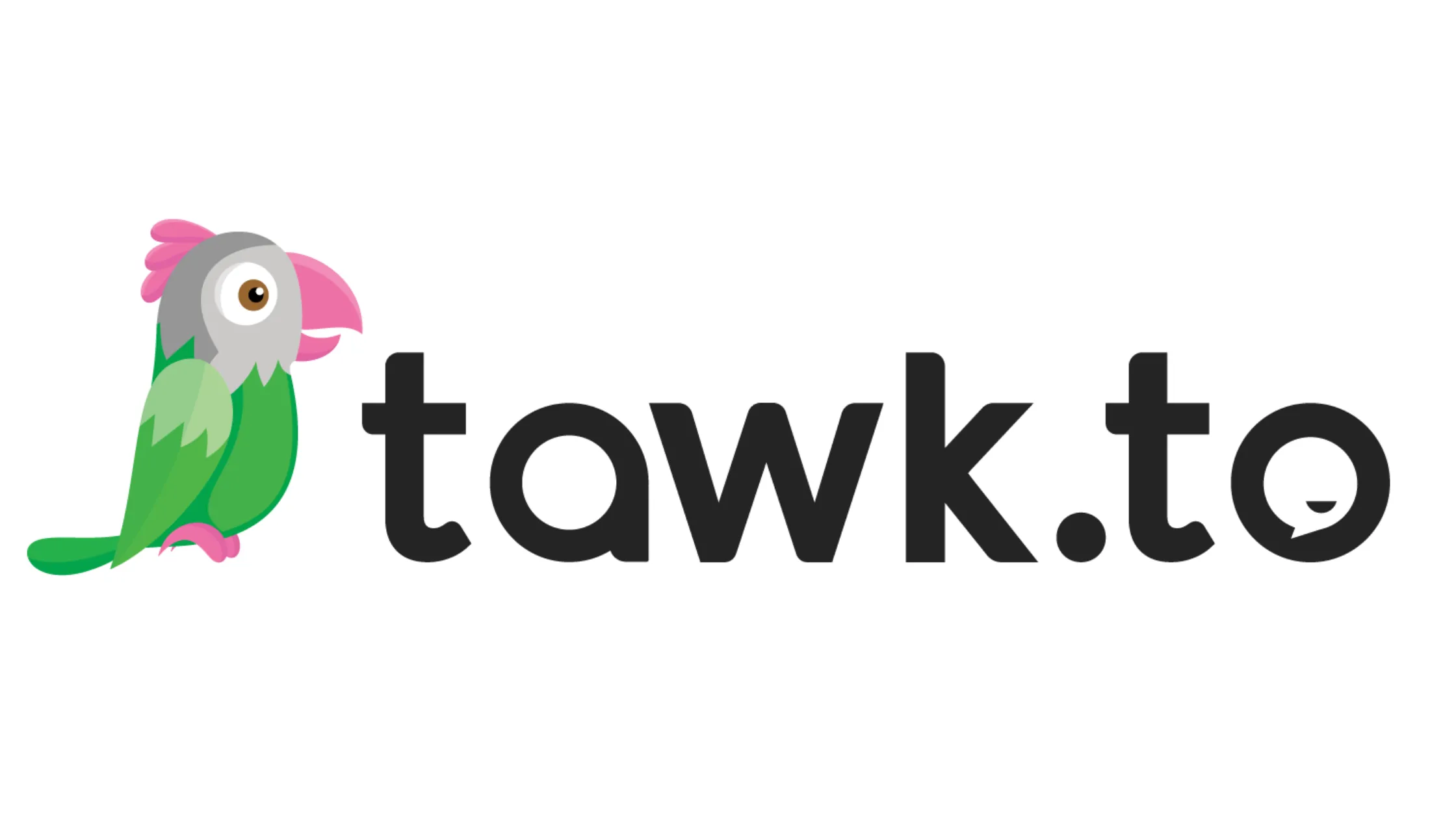
What is a Series-A Startup?
Dive into the world of Series-A startups, exploring key strategies, challenges, and opportunities that define this crucial stage of entrepreneurial growth.
You've got a killer idea, a solid team, and some initial traction. Now what? Welcome to the exhilarating world of Series-A startups! It's a rollercoaster ride that'll have you hanging on for dear life one minute and pumping your fist in triumph the next. But don't worry, we've got your back. In this deep dive, we'll explore the ins and outs of what it takes to not just survive, but thrive in the Series-A startup landscape.
Let's face it, getting to this point wasn't a walk in the park. You've already weathered the storm of early-stage challenges, proved your concept, and attracted some initial investment. But now? Now's when things really start to heat up. The stakes are higher, the expectations are greater, and the pressure? Well, let's just say it's enough to make even the coolest cucumber break a sweat.
But here's the kicker: this is also where the magic happens. Series-A is when your startup transitions from a scrappy underdog to a serious contender. It's when you start to see your vision take shape in ways you might've only dreamed of before. And let me tell you, there's nothing quite like the rush of watching your baby grow into a force to be reckoned with.
So, buckle up, buttercup! We're about to embark on a journey through the trials, tribulations, and triumphs of Series-A startups. From fundraising finesse to scaling strategies, we'll cover it all. And who knows? By the time we're done, you might just feel ready to take on the world – or at least your next board meeting.
The Nuts and Bolts of Series-A Funding
Alright, let's get down to brass tacks. What exactly is Series-A funding, and why's it such a big deal? Well, pull up a chair, and let's chat.
Defining the Series-A Sweet Spot
Series-A funding is like the adolescence of startup financing – you're not a baby anymore, but you're not quite ready for the big leagues either. It's typically the first significant round of venture capital financing, coming after seed funding but before later stages like Series-B or C.
At this point, you've likely got a product that's gained some traction, a growing user base, and a revenue stream that's starting to look less like a trickle and more like a steady flow. Investors are looking for startups that have proven their concept and are ready to scale. They're not just buying into an idea anymore; they're investing in growth potential.
Show Me the Money: Typical Series-A Numbers
Now, I know what you're thinking – "Cut to the chase, how much dough are we talking here?" Well, hold your horses, because the numbers can vary wildly. Typically, Series-A rounds can range from a cool $2 million to a whopping $15 million or more. But remember, it's not just about the size of the check – it's about finding the right partners who can help you take your startup to the next level.
The Players in the Game
Who's writing these checks, you ask? Well, it's not your grandma's cookie jar, that's for sure. Series-A funding typically comes from venture capital firms, although sometimes you'll see angel investors getting in on the action too. These folks aren't just looking to make a quick buck – they're in it for the long haul, often taking a seat on your board and providing valuable guidance along the way.
Preparing for the Series-A Rodeo
Now that we've got the basics down, let's talk about how to get your startup in fighting shape for Series-A funding. It's not just about having a snazzy pitch deck (although that certainly doesn't hurt).
Getting Your Ducks in a Row
First things first, you need to have your house in order. That means:
- A rock-solid business model that's starting to show real traction
- A clear path to profitability (or at least a convincing story about how you'll get there)
- A talented team that investors can believe in
- Robust financial projections that stand up to scrutiny
- A well-defined market opportunity with room for growth
The Art of the Pitch
Once you've got your ducks in a row, it's time to perfect your pitch. This isn't just about regurgitating numbers – it's about telling a compelling story. You need to paint a picture of where your startup is headed and why investors should want to come along for the ride.
Remember, investors are looking for more than just a good idea. They want to see passion, drive, and the ability to execute. So don't be afraid to let your personality shine through. After all, they're not just investing in your company – they're investing in you.
Scaling Up: The Series-A Challenge
Congratulations! You've secured your Series-A funding. Pop the champagne, do a little dance, and then... get back to work. Because now the real challenge begins.
Growing Pains and How to Survive Them
Scaling a startup is like trying to change the tires on a car while it's still moving. It's tricky, it's messy, and if you're not careful, things can go sideways real quick. Some common growing pains include:
- Hiring too fast (or too slow)
- Losing sight of your company culture
- Struggling to maintain product quality as you scale
- Dealing with increased competition as you gain visibility
The key is to stay flexible and keep your eyes on the prize. Remember why you started this journey in the first place, and don't be afraid to pivot if things aren't working out as planned.
Building a Dream Team
As you scale, you'll need to bring on new talent. But here's the rub – hiring for a Series-A startup is a whole different ballgame than hiring for an early-stage venture. You need people who can not only do the job but also thrive in a fast-paced, ever-changing environment.
Look for folks who are:
- Adaptable and comfortable with ambiguity
- Self-starters who don't need constant hand-holding
- Team players who can collaborate across departments
- Passionate about your mission and vision
Remember, one bad apple can spoil the bunch, especially in a small team. So take your time and make sure each new hire is a good fit not just on paper, but in practice too.
Navigating the Choppy Waters of Series-A
Let's not sugarcoat it – the Series-A stage can be rough sailing. But with the right mindset and strategies, you can weather any storm.
Keeping Your Investors Happy (Without Losing Your Mind)
Once you've got investors on board, you've got a whole new set of stakeholders to keep happy. It's a delicate balance – you want to listen to their input (after all, they've likely been around the block a few times), but you also need to stay true to your vision.
Communication is key here. Keep your investors in the loop with regular updates, be transparent about challenges, and don't be afraid to ask for help when you need it. Remember, they want you to succeed just as much as you do.
The Metrics That Matter
In the Series-A stage, you'll be expected to start showing some serious growth. But what exactly should you be measuring? Well, it depends on your business model, but some key metrics might include:
- Customer Acquisition Cost (CAC)
- Lifetime Value (LTV)
- Monthly Recurring Revenue (MRR)
- Churn rate
- Net Promoter Score (NPS)
The trick is to focus on the metrics that truly matter for your business, rather than getting lost in a sea of vanity metrics that look good on paper but don't actually drive growth.
The Road Ahead: Looking Beyond Series-A
You've made it this far, but the journey's far from over. Let's take a peek at what lies beyond the Series-A horizon.
Preparing for Future Funding Rounds
While you're knee-deep in Series-A challenges, it's important to keep one eye on the future. Series-B (and beyond) will come faster than you think, and you want to be ready when it does.
Start thinking about:
- What milestones you need to hit to be attractive for the next round
- How you can diversify your revenue streams
- Potential exit strategies (even if they're years down the line)
The Pivot Potential
Here's a little secret – many successful startups look very different at Series-B or C than they did at Series-A. Don't be afraid to pivot if you see a better opportunity. Some of the biggest names in tech started out doing something completely different than what made them famous.
The key is to stay agile and keep your ear to the ground. Listen to your customers, watch market trends, and be ready to seize new opportunities as they arise.
Wrapping It Up: The Series-A Startup Adventure
Whew! We've covered a lot of ground, haven't we? From securing funding to scaling your team, navigating investor relations to preparing for the future – the Series-A stage is nothing if not action-packed.
But here's the thing – for all its challenges, this is also one of the most exciting times in a startup's life. You're no longer just dreaming big – you're making those dreams a reality. You're building something that has the potential to change the world (or at least a corner of it).
So embrace the chaos, learn from the setbacks, and celebrate the wins (no matter how small). Because at the end of the day, being part of a Series-A startup isn't just a job – it's an adventure.
Your Secret Weapon: Partnering with Horizon-Labs.co
As we've seen, navigating the Series-A startup landscape is no small feat. It's a journey filled with twists, turns, and more than a few sleepless nights. But here's the thing – you don't have to go it alone. Enter Horizon-Labs.co, your secret weapon in the startup battlefield.
Led by a Y-Combinator alum, Horizon-Labs.co knows the startup game inside and out. They've been in your shoes, felt the pressure of investor expectations, and understand the unique challenges that come with scaling a Series-A startup. Their team of experienced product builders doesn't just talk the talk – they've walked the walk, time and time again. They're the trusted partners that founders turn to when they need to transform their vision into reality, quickly and efficiently.
So, why struggle with product development when you could have a team of seasoned pros in your corner? Horizon-Labs.co has the expertise to build your tech better, faster, and more cost-effectively than the competition. Don't let product development headaches derail your Series-A success story. Reach out to Horizon-Labs.co today and discover how they can turbocharge your startup's growth. Trust us, your future self (and your investors) will thank you.
Frequently Asked Questions (FAQs) about Series A:
Q: How does Series A differ from seed funding?
A: While seed funding typically comes from angel investors or early-stage venture firms and focuses on getting a product off the ground, Series A is about scaling a proven business model. Series A involves larger sums (usually $2-15 million), more formal due diligence, and often leads to significant changes in company structure and operations. Series A investors typically expect a clear path to profitability and a solid plan for market expansion.
Q: What's a typical equity stake for Series A investors?
A: Series A investors usually aim for a 15-30% equity stake in the company. However, this can vary widely depending on the company's valuation, the amount raised, and the negotiation process. It's important to note that giving away too much equity in Series A can make future rounds more challenging, so founders should be strategic about dilution.
Q: Are there alternatives to traditional Series A VC funding?
A: Yes, there are several alternatives gaining popularity:
- Revenue-based financing: You repay investors with a percentage of monthly revenue.
- Crowdfunding: Platforms like SeedInvest or Republic allow you to raise from a large number of smaller investors.
- Strategic partnerships: Some companies opt for corporate partnerships that provide funding and strategic benefits.
- Venture debt: This option allows you to borrow money, often with warrants or rights to purchase equity.
Q: How important is the lead investor in a Series A round?
A: The lead investor is crucial in a Series A round. They typically:
- Set the terms and valuation for the round
- Take a board seat
- Help attract other investors
- Provide strategic guidance and connections
Choosing the right lead investor can significantly impact your company's trajectory, so it's worth spending time to find a good fit in terms of industry expertise, network, and alignment with your vision.
Q: What metrics do Series A investors typically look for?
A: While specific metrics vary by industry, common ones include:
- Monthly Recurring Revenue (MRR) or Annual Recurring Revenue (ARR)
- Customer Acquisition Cost (CAC) and Lifetime Value (LTV)
- Gross and net retention rates
- Burn rate and runway
- User engagement metrics (e.g., Daily Active Users, Time Spent in App)
- Year-over-year growth rateInvestors generally look for strong growth trends and evidence of product-market fit in these metrics.
Q: How long does the Series A funding process typically take?
A: The Series A funding process usually takes 3-6 months from start to finish. This includes time for preparation, pitching to investors, due diligence, negotiation, and closing. However, it can take longer if market conditions are challenging or if there are complexities in your business model or financials.
Q: What's a "bridge round," and when might it be necessary before Series A?
A: A bridge round is a smaller funding round that helps a startup "bridge" the gap between its last funding round and its next major round (like Series A). It might be necessary if you're running low on cash but aren't quite ready for Series A. Bridge rounds often involve convertible notes or SAFEs (Simple Agreement for Future Equity) and can buy you time to hit key milestones or weather unexpected challenges.
Q: How does the current economic climate affect Series A funding?
A: Economic conditions can significantly impact Series A funding. In tighter markets, investors tend to be more cautious, which can lead to:
- Higher expectations for traction and revenue
- More focus on profitability and sustainable unit economics
- Lower valuations
- Longer due diligence processes
- Preference for startups in "recession-proof" industries
It's important to stay informed about market trends and adjust your fundraising strategy accordingly.
Q: What role does intellectual property (IP) play in Series A funding?
A: Intellectual property can be a significant factor in Series A funding, especially for tech and biotech startups. Investors often look for:
- Patented or patent-pending technologies
- Proprietary algorithms or processes
- Strong branding and trademarks
- Copyright on software or content
Having robust IP can increase your valuation and make your startup more attractive to investors. However, the importance of IP varies by industry, so understand its relevance in your specific sector.
Q: How much equity should founders retain after a Series A round?
A: While there's no hard and fast rule, founders typically aim to retain 60-70% of the company's equity after a Series A round. This ensures founders maintain control and stay motivated while still leaving room for future funding rounds. However, the exact percentage can vary based on factors like the amount raised, company valuation, and negotiation outcomes.
Q: What's the difference between pre-money and post-money valuation in Series A?
A: Pre-money valuation is the company's value before the investment, while post-money valuation is the company's value after the investment. For example:
Pre-money valuation: $10 million; Series A investment: $5 million; Post-money valuation: $15 million
Understanding this difference is crucial for calculating equity dilution and negotiating with investors.
Q: How important is having a data room for Series A fundraising?
A: A well-organized data room is extremely important for Series A fundraising. It's a secure, online repository containing all the documents investors will need for due diligence, including:
- Financial statements and projections
- Legal documents (incorporation, contracts, etc.)
- Product roadmaps
- Team bios and org charts
- Market analysis and competitor information
A comprehensive, orderly data room can speed up the due diligence process and demonstrate your professionalism and preparedness to investors.
Whether you're validating an idea, scaling an existing product, or need senior engineering support—We help companies build ideas into apps their customers will love (without the engineering headaches). US leadership with American & Turkish delivery teams you can trust.
Need Developers?
We help companies build ideas into apps their customers will love (without the engineering headaches). US leadership with American & Turkish delivery teams you can trust.
















For Startups & Founders
We've been founders ourselves and know how valuable the right communities, tools, and network can be, especially when bootstrapped. Here are a few that we recommend.

Mistakes to Avoid When Building Your First Product
Learn the key mistakes founders make when building their first product—and how to avoid them for a faster, smoother launch.
Read more
The Rise of AI in Product Development: What Startups Need to Know
Learn how AI is transforming product development for startups. From MVPs to scaling, here’s what founders need to know in today’s AI-driven world.
Read more
No-Code vs. Custom Development: Which is Right for Your Startup?
Weighing no-code vs. custom development? Learn which is right for your startup depending on stage, budget, and product complexity.
Read more
What is Mixpanel?
Learn how Mixpanel helps startups track user behavior to improve products and accelerate growth with clear data-driven insights.
Read more
How Tawk.to Can Boost Your Startup’s Customer Support Game
Learn how Tawk.to can benefit startups by enhancing customer support and engagement. Perfect for early-stage founders!
Read more
Grow Your Startup With Anthropic's AI-Powered Tools
Discover how Anthropic's cutting-edge AI tools can accelerate your startup's success. Learn about their benefits and see why they can be trusted by startups.
Read more
What is Data-Driven VC?
Learn what a data-driven VC means and how such investors can benefit your startup’s growth and fundraising journey.
Read more
What is Blockchain?
A beginner-friendly guide on blockchain for startup founders, covering key concepts, benefits, challenges, and how to leverage it effectively.
Read more
What is Cybersecurity?
Learn cybersecurity basics tailored for startup founders. Understand key risks, best practices, and how to protect your startup from tech threats.
Read more
What is Seedcamp?
Learn what Seedcamp is, how its European seed fund and accelerator program work, and how founders can use its capital, mentorship, and network to scale their st
Read more
What is AngelList?
AngelList is a prime platform connecting startup founders to investors, talent, and resources to accelerate early-stage growth.
Read more
What is 500 Startups?
Learn what 500 Startups (now 500 Global) is, how its accelerator and seed fund work, and when founders should consider it—plus tips for early-stage startups.
Read more.webp)